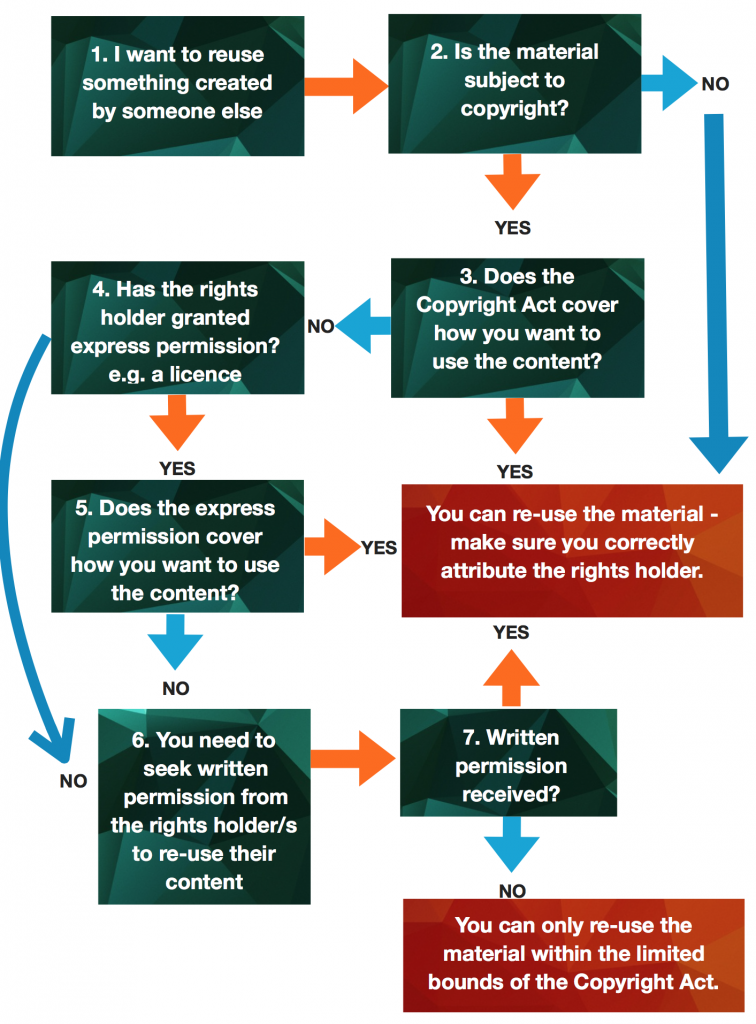Reusing Existing Information and Data
Are you reproducing or reusing someone else’s information or data in your own work?
Researchers have the right to be credited and rewarded for their original work whether it be print, audio, video, images, datasets, etc. This FAQ will guide you in responsibly reusing existing information and data.
Remember, when people know and follow the guidelines, it is easier to work together and share knowledge. If you know how to get proper permissions and give proper credit to the work of others, you won’t run the risk of passing off the material as your own.
Responsible Sharing and Reuse of Other People’s Work
Before using work created by someone else, ask yourself the following questions––or follow the flowchart––to help you understand the steps to ensure good intellectual property management.
- Do you want to use information or data created by someone else?
Often you will want to share someone else’s original work (e.g. on a website), adapt it or incorporate it into your own work. - Is the work you want to use subject to copyright?
Before you share, incorporate or adapt someone else’s work, you need to check if it is subject to copyright law. Look for the © symbol on the work. Remember, in most countries the creators of original works are automatically granted copyright, even if it’s not marked with the copyright symbol. - Does the copyright law cover how you want to use the content?
Generally, copyright restrictions mean that you can only make quite limited use of someone else’s original work (e.g. even sharing it via a website may not be legal). If you wish to reuse information or data in ways outside what copyright law permits, you may need to get permission from the copyright holder. - Does the copyright law cover how you want to use the content?
Generally, copyright restrictions mean that you can only make quite limited use of someone else’s original work (e.g. even sharing it via a website may not be legal). If you wish to reuse information or data in ways outside what copyright law permits, you may need to get permission from the copyright holder. - Does the permission cover how you want to use the content?
If you want to re-package and distribute content, derive new products from existing information, or integrate multiple sources into new products, you have to check if the express permission allows you to do any of these. If not, then you have to seek written permission from the rights holders. For example, some licenses allow a work to be redistributed in its entirety but don’t allow others to modify or build upon the work. - How do you ask for written permission?
Contact the copyright holder, specify the work you want to get permission for and identify how you intend to use and share the copyrighted material. Include details of any open license you wish to apply to your new work.

